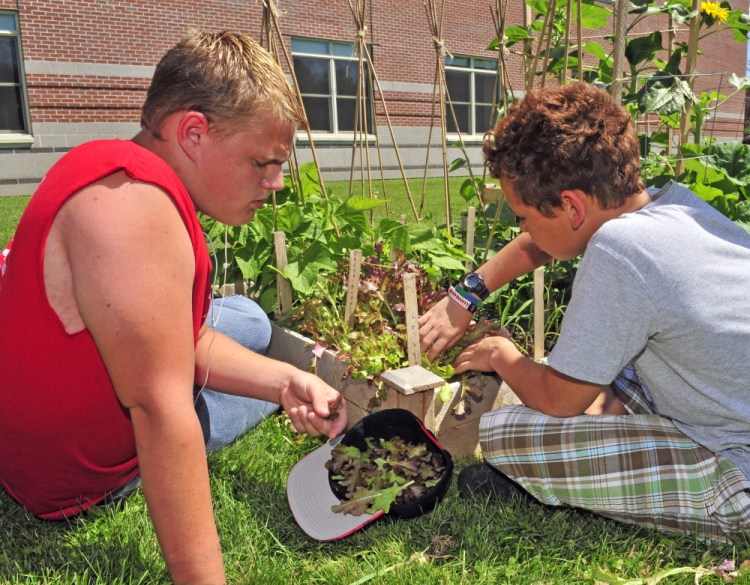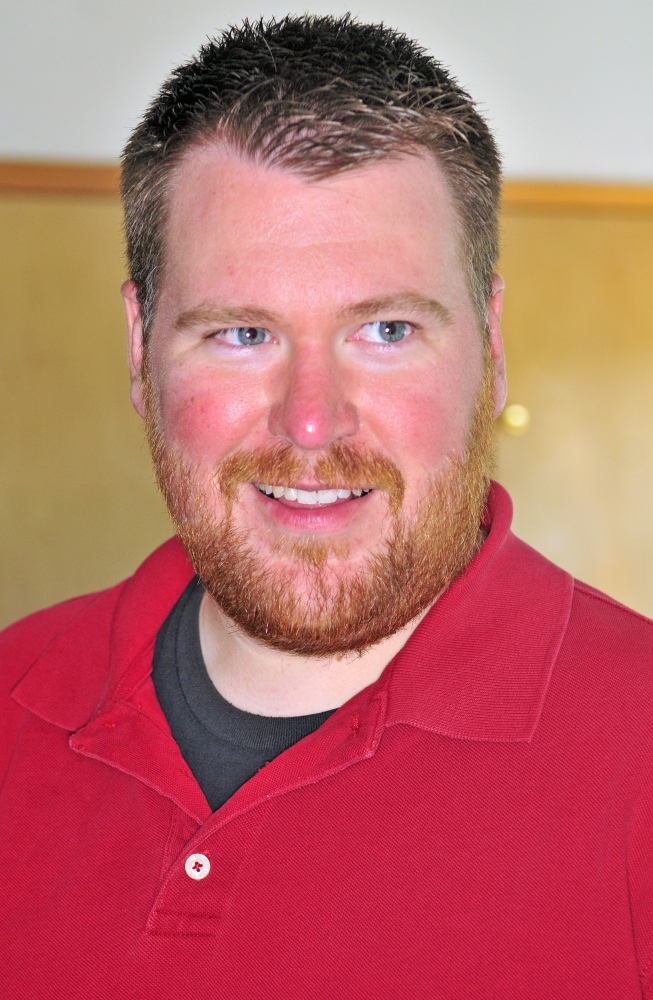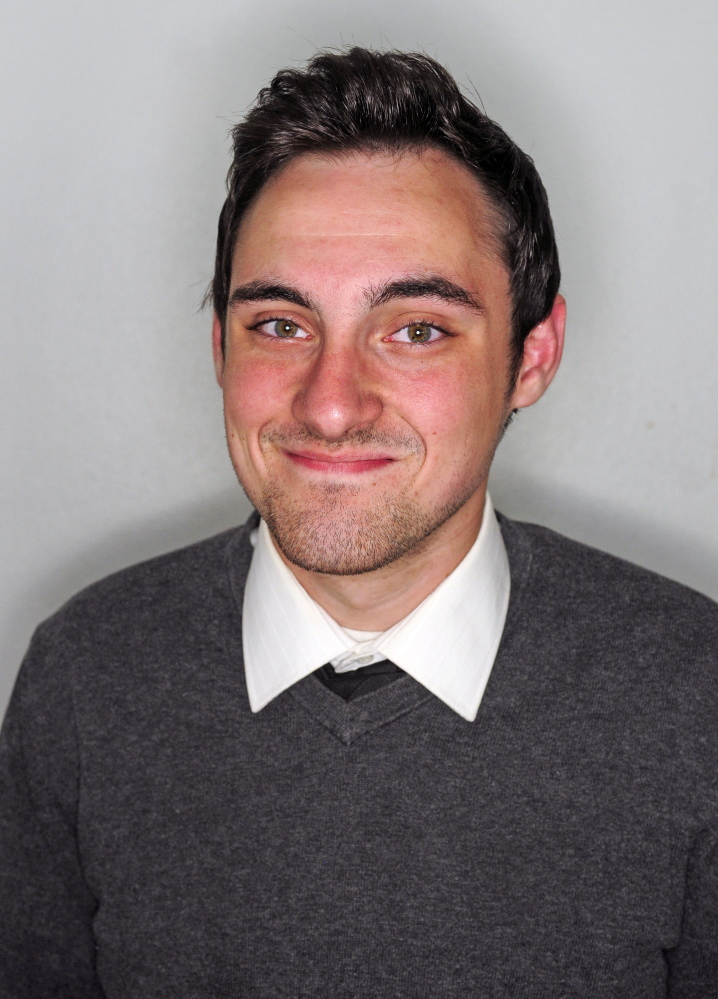AUGUSTA — A club that gives teenagers a free and safe place to be themselves is turning to the community to help keep it going after the nonprofit organization that funded it for several years severed ties this year.
The Augusta Boys and Girls Club for Teens has partnered with Spurwink Services, a Portland-based behavioral mental health and education organization, since 2004 to run after-school and summer programs and a teen center in the city-owned Buker Community Center.
But Spurwink ended its direct relationship and ceased funding the operations of the club, which serves 200 Augusta-area teens per year, as of this month.
That has left officials and volunteers with the local club, who have known for about a year that Spurwink had planned to end the arrangement, to scramble to cover the annual $125,000 operating budget in other ways, including seeking to re-establish the nonprofit status it gave up when it joined with Spurwink.
“Fundraising is ongoing,” said Tobias Parkhurst, who is on the club’s board of directors. “And we’ve got a grant-writing team seeking grants. We’ll keep working. We’ll get there. We have to. The good news is what we’ve had through this entire thing is really good programs. We have a really good story to tell to the community about what is going on here.”
That story includes an after-school program at the teen center that draws about 30 participants a day; a summer program that provides about 20 teens with activities, including occasional trips to state and local parks; an alternative-to-suspension program, in which Cony High School students who otherwise would be suspended for misbehavior instead go to the club for counseling; and other programs, all of which are offered at no charge to participants.
Parkhurst said charging teens or their families fees to participate in club programs is not under consideration by the board. He said 65 percent of Cony students have families with incomes low enough to qualify for free or reduced-price lunch. He said the club provides the only such free programs in the city and considers it important they be free so all teens who wish to attend can do so.
“It’s the responsible thing for us to give these kids the same opportunities affluent kids have,” said Parkhurst, chief operating officer of Oakes and Parkhurst Glass, in Manchester. “The situation in this community is we have youth in need. We’re not a taxpayer-funded organization, but kids don’t pay to come here.
“It makes me feel good to be in a community that cares for the less fortunate. And even the kids who aren’t less fortunate, they’re still teenagers. We need to be careful in this community about what we’re churning out for adults. We take at-risk teens and turn them into taxpayers.”
‘IT MADE ME A BETTER PERSON’
Martin Hepburn, 20, of Augusta, a customer service representative at J&S Oil in Manchester, who joined the club as a Cony freshman at the suggestion of a teacher, said the club provided him and other teens with a place where they could be themselves, and talk with positive role models about things teens don’t feel comfortable talking about with their parents.
He said staff at the club helped him get into college — the first in his family to do so — and find a job.
“The club helped me open up and meet people, which gave my confidence a boost in school,” said Hepburn, who greets visitors with a firm handshake. “It made me a better person and opened me up to new experiences. I could go on for an hour about it. It got me away from all the negative things in life, and toward positive things.”
Parkhurst and Darren Joyce, program director and one of two full-time paid staff members at the club, said the community has been responsive to its pleas for funding. They noted the United Way of Kennebec Valley, long a funder of club programs already, stepped up its contribution this year by 133 percent, to more than $30,000. The United Way is also working with the club to accept donations, until the club regains its nonprofit organization status.
Fundraisers including a St. Patrick’s Day event brought in more money.
The club receives about $18,000 a year from the federal Department of Corrections for a program it oversees providing counseling and other services to youth offenders meant to prevent them from re-offending.
And an Elks Club program provides $10,000 for participants in the club to go on trips.
The club also reached an agreement with the city to waive the $24,000 a year in rent the club, under Spurwink, paid the city for its space in the Buker Community Center.
Some city councilors, who approved the removal of that revenue from the city budget earlier this year, noted the club provides valuable services to local teens, services the city and schools thus don’t have to provide.
Jan Rollins, an assistant principal at Cony, said the club’s after-school and alternative-to-suspension programs are invaluable.
“My middle school students can’t wait to get there. They love it,” she said of the teen center. Club staff members “understand the need to develop relationships with students, so students relate to them very well. It has made a huge, positive difference.”
Rollins said staff members who work with students at the club in the alternative-to-suspension program help teens talk about their actions and develop goals and a plan to reach those goals, and those plans are shared with school officials so, together, all involved can help students become and remain successful.
Zach Peaslee, 13, participates in the summer program at the club and also has taken part in its after-school activities. He said the club has helped him make friends, become more outgoing and given him a safe place to hang out.
He spent part of Friday with other participants in the club at Cony, weeding a garden at the school. The night before he was part of a club trip to Fenway Park for a Red Sox game.
He said if he weren’t at the club this summer, he’d probably be doing nothing.
“I love it,” he said of the club. “It’s a good safe place to be with your friends and make new friends. It has made a big impact with me.”
ENDING A RELATIONSHIP
Parkhurst said he harbors no ill will toward Spurwink for ending its funding. He thinks Spurwink probably ended the relationship in response to the poor economy and chose to focus on its core missions of behavioral health and special education.
Eric Meyer, Spurwink’s president and chief executive officer, said he has been with the organization for only a year and wasn’t involved with the decision to end the relationship, but he said the organization’s board generally thought the club was not part of its core mission.
“My impressions were it was a really mutually beneficial and good collaboration,” he said of the 10-year partnership. “But over the years, all organizations look at partnerships they’re connected with to make sure they’re being focused and kind of have a direction that can help bolster their core services. We continue to value the relationship and will be supportive of the club, but it’s not exactly tied in with our core mission.”
He said funding is always an issue for nonprofits, but a lack of funds wasn’t the primary factor driving the change.
He noted Spurwink still considers the Augusta area one of its core service areas, where it has an educational and residential day treatment program in Chelsea, case managers who work throughout the area out of offices in Randolph, and school-based counselors in the area.
“I think if you drop by the club in the coming year, you’ll probably see Spurwink case managers there,” he said. “Organizationally, we don’t have a direct relationship. But our team in the area will continue to work closely together with” the club.
Parkhurst said grants the club had before it joined with Spurwink ran out during Spurwink’s oversight. And the board of directors became less active locally, as Spurwink increasingly ran the club as its own. Now, he said, the club has to re-establish its independence and its funding sources.
Parkhurst said the club has not yet come up with ways to make up for the loss of the Spurwink funding entirely, but he said the community has been supportive and he’s confident the club will find a sustainable funding model to keep its programs running.
“We didn’t know what we were going to do,” Parkhurst said, referring to club officials learning, a year ago, that Spurwink was ending the direct relationship. “We ultimately decided to return to being a teen center and look to other (funding sources) that support that mission. We’re almost where we need to be, but we’re not there yet. I don’t think we’re going away.”
Keith Edwards — 621-5647
kedwards@centralmaine.com
Twitter: @kedwardskj
Copy the Story LinkSend questions/comments to the editors.






Success. Please wait for the page to reload. If the page does not reload within 5 seconds, please refresh the page.
Enter your email and password to access comments.
Hi, to comment on stories you must . This profile is in addition to your subscription and website login.
Already have a commenting profile? .
Invalid username/password.
Please check your email to confirm and complete your registration.
Only subscribers are eligible to post comments. Please subscribe or login first for digital access. Here’s why.
Use the form below to reset your password. When you've submitted your account email, we will send an email with a reset code.